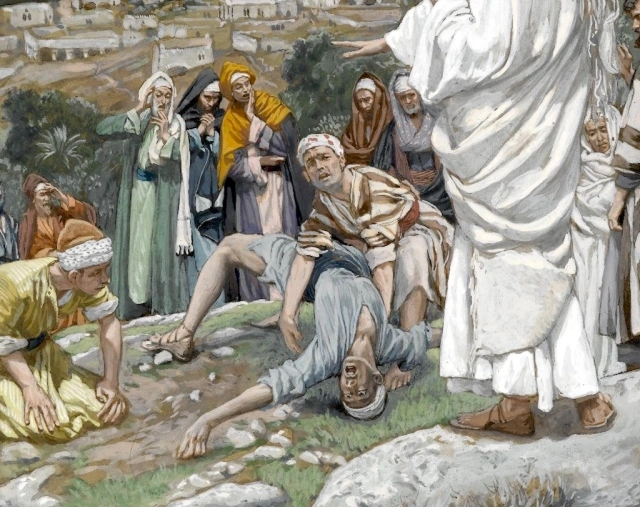Today I want you to reflect with me on the gospel of the nobleman taken from John 4:43-54.
(i) Here is a noble man who came to a carpenter. Scriptures uses the Greek word “basilikos” which could even mean that he was a petty king; but it is used for a royal official and he was a man of high standing at the court of Herod. Jesus on the other hand had no greater status than that of the village carpenter of Nazareth. Further, Jesus was in Cana and this man lived in Capernaum, almost twenty miles away. That is why he took so long to get back home.
There could be no more improbable scene in the world than an important court official hastening twenty miles to beg a favour from a village carpenter. First and foremost, this noble man swallowed his pride. He was in need, and neither convention nor custom stopped him bringing his need to Christ. His action would cause a sensation but he did not care what people said so long as he obtained the help he so much wanted.
I have come to believe that if I want the help which only Jesus Christ can give, then I must be humble enough to swallow my pride and not care what any person or man may say but come to Jesus. I need to make that first move.
(ii) Here is a noble man who refused to be discouraged. At first meeting with Jesus, the noble was met with a bleak statement that people would not believe unless they were supplied with signs and wonders. I wonder if that statement was meant at the noble man himself, or at the crowd that must have gathered to see the outcome of this sensational happening. I also wonder if Jesus made that statement to me, when I go to Him, how would I react.
But Jesus had a way of making sure that a person was in earnest. He did that to the Syro-Phoenician woman (Matt.15:21-28). I just think if the noble man had turned irritably and turned away what would be the outcome of the miracle. Similarly, if he had been too proud to accept Jesus’s rebuke or if he had given up despairingly on the spot, Jesus would have known that his faith was not real.
Personally I think I need to come in earnest before the help of Christ can come to me.
(iii) Here was a noble man who had faith. It must have been hard for him to turn away and go home with Jesus’ assurance that his little lad would live. Yet he had faith enough to turn and walk back (there was no modern means of transport at that time) that twenty-mile road with nothing but Jesus’ assurance to comfort his heart.
It is of the very essence of faith that I should believe that what Jesus says is true. So often I have a kind of vague, wistful longing that the promises of Jesus should be true. An example that comes to me is of a drowning man who will clutch with such intensity in order to be saved. In other words, my faith should be like of that drowning man clutching to Jesus and His words. If Jesus says a thing, it is not a case of “It may be true”; it is a case of “It must be true.”
(iv) Here was a noble man who surrendered. Here was not a man who got out of Christ what he wanted and then went away to forget. It is easy to overlook the last part of this reading. It is mentioned that He and all his household believed. That would not be easy for him, for the idea of Jesus as the Anointed One of God must have cut across all his preconceived notions. Nor would it be easy at the court of Herod to profess faith in Jesus. He would have mockery and laughter to endure; and no doubt there would be those who thought that he had gone slightly mad.
But this noble man was a man who faced and accepted the facts. He had begun with a sense of desperate need; that need had been supplied; and his sense of need had turned into an overmastering love. He had seen what Jesus could do; he had experienced it; and there was nothing left for it but surrender. The story of every Christian should be the same, come in despair and once a need is supplied, it should turn into a love of Christ extremely supreme.
I want to leave you with this question which I ask myself: Does the free gift of God turn me into a person of overmastering love of God and others?



